All 11 sectors in the S&P 500 were in the red on Monday (Aug 22) with a whopping 480 stocks in red and just 23 in green. The Standard and Poor’s 500 lost 2.14% – biggest drop since June 28. The Dow Jones Industrial Average plunged 643.13 points, while the Nasdaq Composite tumbled 2.55% – the worst day of trading since June 16. So, what happens to the claims that the worst is over?
The drop of more than 600 points provides a good lesson to those who prematurely entered the stock market and foolishly concluded that the recent rebound was signs that the inflation is over and there will be no recession. The Wall Street ended in red primarily because investors were spooked by the coming U.S. Federal Reserve meeting this Friday.
But if the worst of inflation is over, there isn’t any reason to be terrified about what Fed Chairman Jerome Powell has to say, is there? In truth, even after a summer rally ended last week, the S&P 500 remains down about 13% so far in 2022, while the Nasdaq has lost more than 20%. Worse, the CBOE Volatility index, Wall Street’s fear measurement, jumped to 23.9 – the highest in over two weeks.
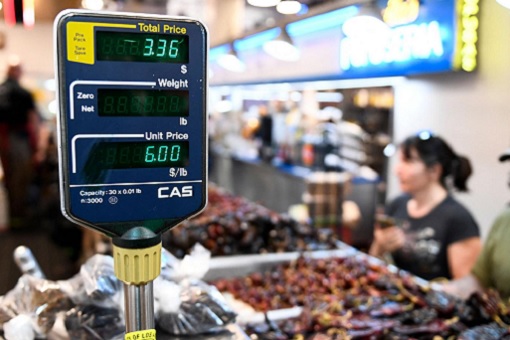
Investors fear Powell is going to sound hawkish to hammer inflation. The Fed could raise interest rates by between 50 and 75 basis points, suggesting that inflation is still a huge problem, which in turn could trigger a global recession, if it has not already begun. In fact, only 13% of Americans believe Biden’s Inflation Reduction Act (IRA) worth US$369 billion will reduce inflation.
As inflation is now costing U.S. households an extra US$717 a month, President Joe Biden signed the half-baked IRA into law on Aug 16, claiming it will help lower healthcare and energy costs for millions of Americans. But the people were not convinced, so much so 41% believe inflation will go higher within 6 months, while 23% said they believe inflation will remain the same.
The Biden administration is so desperate that hidden in the law was a provision of nearly US$80 billion in funding to the Internal Revenue Service, including US$45.6 billion for “enforcement” to hunt down middle-income Americans and small business owners for audits. Even if the U.S. thinks it is in good condition, which is not, the same cannot be said about Europe.
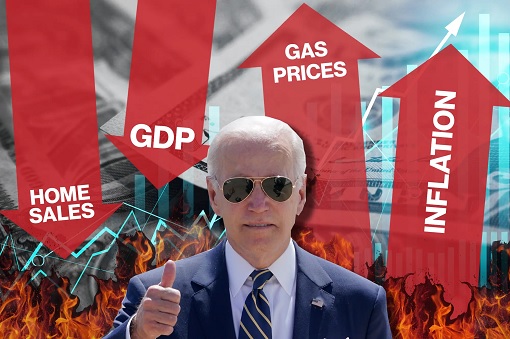
As recession fears continue to haunt the euro zone, the currency – Euro – briefly slipped below parity with the U.S. dollar on Monday for the first time since mid-July. The European Union’s inflation rate jumped to 8.9% in July, up from 8.6% in June, 8.1% in May, and 7.4 % in April. The U.K.’s inflation rate skyrocketed to its 40-year-high of 10.1% in July as rising food prices escalated.
But the worst is not over in Britain. A recent report from Citi Group showed the U.K. inflation hitting 18% next January (2023). Even though it has exited the E.U., it can’t hide from the sharp inflation hitting the continent. Germany, the biggest economy in Europe, could see its inflation surge over 10% this fall – the highest in 70 years – according to the country’s central bank chief Joachim Nagel.
Nagel said – “The issue of inflation will not go away in 2023. Supply bottlenecks and geopolitical tensions are likely to continue”. He was referring to the gas supply from Russia, of course. It was already bad that Germany’s inflation hit a 40-year-high of 7.5% in July (due to high energy prices) and its economy was stagnant – growing at 0% in the second quarter.
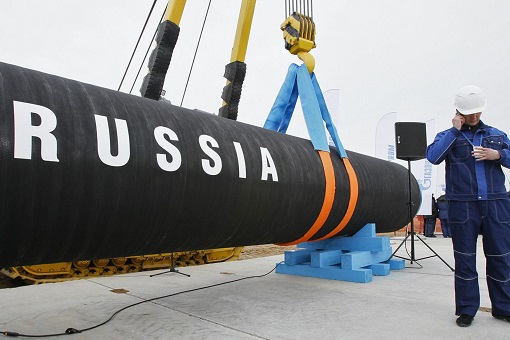
To make matters worse, the ongoing summer heatwave has caused the Rhine to dry up, disrupting a key transportation route for energy shipping. Russia Gazprom, which had cut gas flows to just 40% in July, has further cut it to just 20% in an effort to punish the E.U. biggest economy for imposing sanctions on Moscow. Now, the Germans fear the pipeline’s capacity could be reduced to 0%.
German industry leaders have warned of severe economic hardship – even recession – should Russian gas be cut completely. But recession should be the last thing that Europe has to worry. People could freeze to death if they don’t find enough energy before the arrival of the winter, even though Germany has already started turning off some heating and lights to save energy.
While Germany has managed to reduce its reliance on Russian gas from 55% to about 35% of its demand since the start of the Ukraine war, is still heavily reliant on the Nord Stream 1 pipeline. European natural gas prices hit record after Gazprom said it would shut down Europe’s single biggest piece of gas infrastructure for three days from Aug 31 to Sept 2.
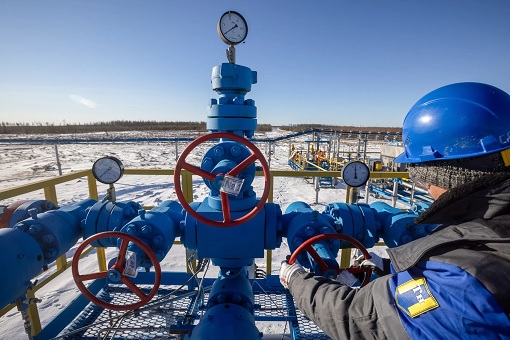
The gas price at the Dutch TTF hub, a European benchmark for natural gas trading, skyrocketed 19% on Monday alone to reach €291.5 (US$291.9) per megawatt hour – a new record after just hitting the record high of €244.55 per megawatt hour on Friday – its fifth consecutive weekly gain. It appears Putin is slowly strangling Germany and Europe by maximizing the damage to the E.U.’s economy.
To add salt to the wound, China stunningly cuts its interest rates again on Monday, just one week after it cut two interest rates. The People’s Bank of China cut its 5-year loan prime rate by 15 basis points to 4.30% from 4.45%, and lowered its 1-year loan prime rate by 5 basis points to 3.65%. Last week, it lowered the rate of one-year MLF (medium-term lending facility) loans to some financial institutions by 10 basis points to 2.75%.
In an effort to fight sluggish economy, Beijing hopes the rate cut would keep banking system liquidity sufficient. The 10 basis points cut last week would affect the 600 billion Yuan worth of MLF loans maturing. Predicting a slower China’s growth, Goldman Sachs lowered its 2022 full-year forecast to 3.0% from 3.3% growth, while Nomura cut its full-year growth projections to 2.8% from 3.3%.

China’s economic indicators for the month of July reveal a slowdown in industrial output, retail sales, housing market and fixed asset investment as the country recovers after months of Covid-19 lockdowns and a worsening global macroeconomic outlook. The unprecedented heatwave and heavy rains experienced in eastern and southern China are also causing further disruption to business and industrial output.
The manufacturing purchasing manager’s index (PMI), an indicator of manufacturing activity in China, showed a contraction in July at 49%, down 1.2 percentage points from June. However, China’s Service Business Activity Index for July, measurement of development in the service sector business activities, stood at 52.8% – indicating a continued expansion.
Additionally, the index for industries including railway and air transportation, catering and hospitality, telecommunications, radio and television, and satellite transmission services, ecological protection and public facility management, culture, sports, and entertainment all showed they are still expanding. Retail sales recorded a positive growth of 2.7%, but below expectation of 5% growth.
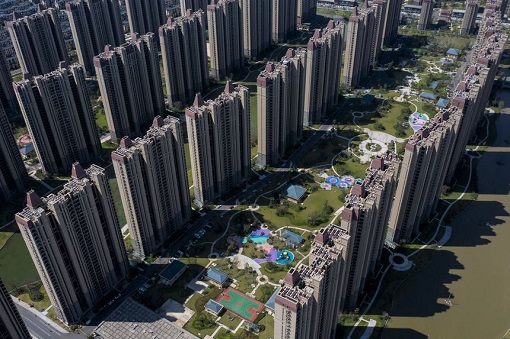
The biggest problem was the property investment, which tumbled 12.3% in July, the fastest rate this year, while the drop in new property sales plunged to 28.9%. Chinese policymakers, flushed with reserves, are trying to balance propping up a fragile recovery and eradicating emerging Covid clusters. Still, even at 2% GDP growth, China would remain a powerhouse as economies in Europe and the U.S. slow.
Other Articles That May Interest You …
- U.S. Plunges Into Recession – But Biden Govt Scramble To Redefine Recession To Create Illusion There Isn’t Any Recession
- Oil Price Could Go Higher & Europe Could Be In Trouble – Putin Might Abruptly Cut Gas Supplies To The E.U. In Coming Weeks
- A Shift In Propaganda To Damage Control In Washington – Why President Biden & Western Media Making U-Turn Now
- Recession Inevitable – Federal Reserve May Slap 0.75% Rate Hike To Trigger A Recession To Try Fix Its Own Screw-Up
- Gloom & Doom Views From World’s Financial Elite At World Economic Forum – Russia Appears Winning Ukraine War
- Economic & Financial Meltdown Is Here – All Signs Lead To Recession, Stagflation, Jobless And A Repeat Of Dot-Com Bust
- Russia Cuts Off Gas To Poland & Bulgaria – European Gas Jumps 24% As Putin Starts Punishing “Unfriendly Countries”
- Ukraine Invasion – Putin’s Real Intention That Conventional Wisdom Have Failed To Comprehend
- U.S. Sanctions Fail – How Russian Currency Emerges Stronger Than Pre-War With A New Gold Standard
- Pay Gas In Ruble Or Else – Europe In Serious Trouble As Putin Retaliates Against Western Sanctions
- From Wheat To Oil & Gas – How Russia Invasion Of Ukraine Affects Europe’s Food Supply, And Even Your Loaf Of Bread

|
|
August 23rd, 2022 by financetwitter
|


|

|

|

|

|

|




























Comments
Add your comment now.
Leave a Reply